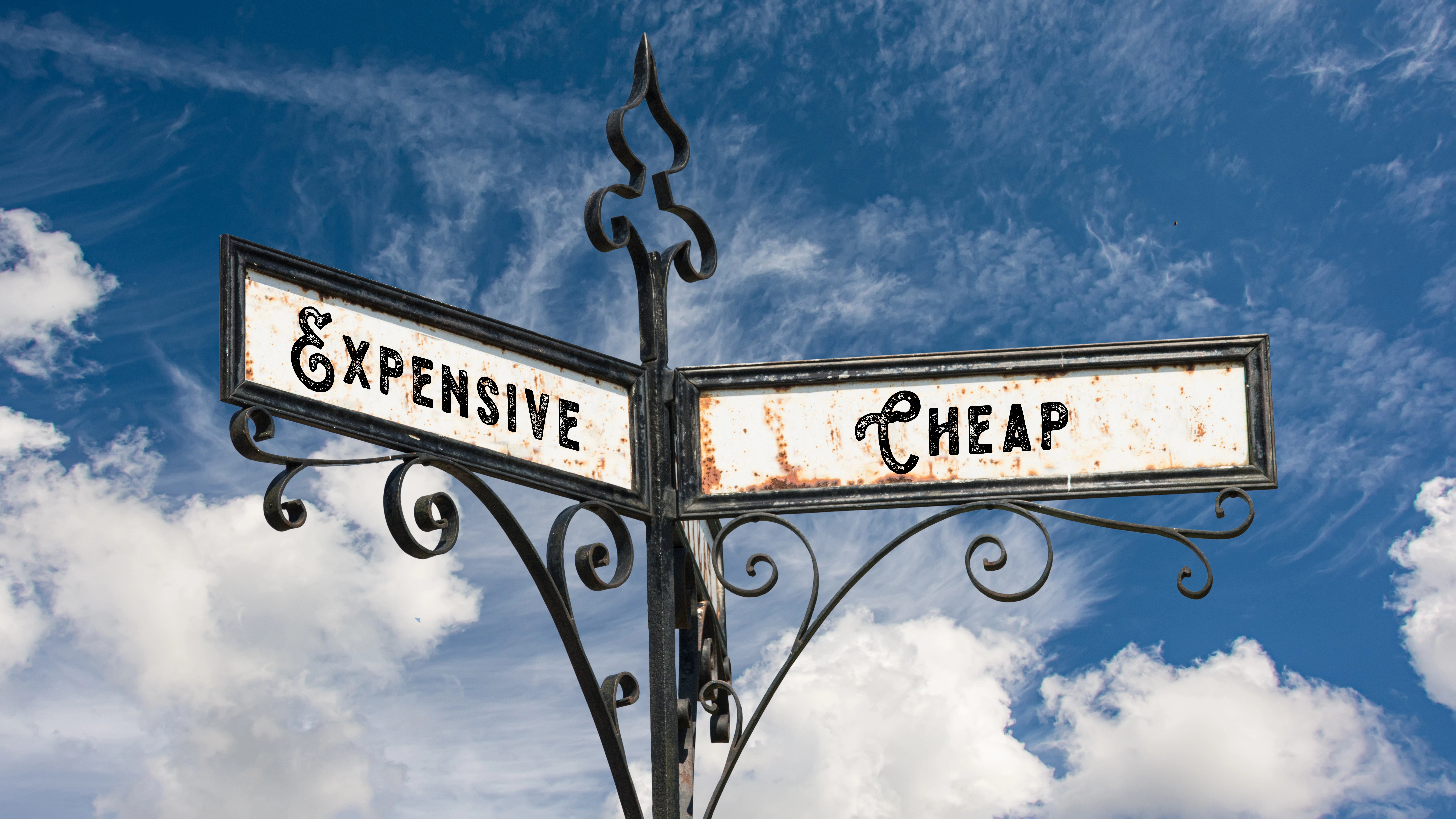 My laptop is a MacBook. Not a MacBook Pro, just a MacBook. I bought it probably close to four years ago. Considering I do most of my work on my laptop, and how quickly computers evolve, that’s a long time.
My laptop is a MacBook. Not a MacBook Pro, just a MacBook. I bought it probably close to four years ago. Considering I do most of my work on my laptop, and how quickly computers evolve, that’s a long time.
Similarly, our car is a 1986 Volvo sedan, which we paid all cash for. It’s solid and it’s kept us safe for years.
I did give in and get an iPhone, when others on my team made persuasive arguments for how it could help integrate what we’re all doing. I don’t regret it, it’s been a handy tool. It’s a 3GS and is probably more than two years old. It works fine.
I’ll admit it, for years I looked at my friends’ smartphones and, more lately, iPads, and other fun toys with some interest.
But I resist. Why do I resist?
Technology In A Business
Some time last year I read Better Off, a fantastic book about a couple who for a year lived in a rural community of folks who considered the Amish too technologically advanced.
Reading, I learned something about the Amish and folks like them. They aren’t anti-technology. What they do is take a very serious look at the ROI (return on investment) of any particular technology. If a technology takes more than it gives, considered holistically, then they don’t use it.
They considered gas-powered cars to take more than they give. The convenience of driving more rapidly is outweighed tremendously by the financial costs, the noise, pollution, and what they do to the speed of life.
It’s a very tempting viewpoint, and one which resonates for me, even as I type this into my laptop. It’s why we’re a one-car family, and I try to use my bicycle far more often.
Circling Back to Business
When you are in business it can be very tempting to want to get the shiny new tools, and frustrating when you aren’t in a position to afford them.
However, you do need to afford something. You need tools to make your business work.
In Jim Collin’s best-selling book, Good to Great, he talks about technology accelerators. The basic idea is this: if the technology is central to how you distinguish yourself, then you need the very best. If it’s not, you can use off-the-shelf.
UPS, for instance, requires the most advanced package tracking system, so it develops it custom. The phone system it uses, however, is probably just whatever they bought off the shelf that works well.
At the level of a micro business, like yours or mine, there is probably very little technology that you need to be cutting edge. You just need it to work.
Here are some insights into where to invest your small budget.
Tips on Investing in Technology
- Your own administrative work.
You have to get a certain amount of administrative work done. Taxes, financial accounting, client notes, inventory, invoices, all of that.
Take some time and think through what you need to make this part of your business easy. It doesn’t have to be fancy or expensive.
There are four invoices I write checks to every month. So, I printed out a sheet of mailing labels for each of those invoices, and have my envelopes, postage, return address labels along with the mailing labels in the same place in my desk drawer. It makes it simple and direct to get those invoices written.
The investment? Buying the labels, the hanging folder, the envelopes, and the postage.
Similarly I invested in Evernote, an online tool to organize all of the PDF invoices I receive, as well as absolutely everything else. It costs a little, about $40/year, but it give me the ability to organize information so easily.
- Caring for your clients.
I’m sure you give care and attention to your clients and customers when you talk to them. But how about your systems and tools? Do they care for people?
Since we do a lot of work online, a lot of the technology we use is online. We use Aweber for our email list, 1ShoppingCart for our shopping cart, Maestro for our conference call service.
We use those services (and yes, those links are affiliate links) because they work and work well. The vast majority of the time our clients have a good, pain-free experience using them. Yes, they each cost money, and guess what, our clients are paying money, so it’s worth it to take care of them.
- Your own creative work.
When I knew I wanted to do video, I didn’t spend a mint, but I spent something. I bought a Kodak Zi8 for under $200, hooked up my under $200 lapel mic, my $50 tripod, and my $100 lighting system.
Having these tools makes it so much easier to do my creative work.
On the cheaper side, I make sure I have plenty of gel pens, because they glide more easily than ballpoint pens do.
As in most things, investing in your business is about the middle way. It rarely pays to get the absolute best, because the difference in quality rarely justifies the difference in price. And it’s often harmful to get the absolute cheapest, because of how painful or difficult those tools can be.
Have any particular technology investments helped you be more heart-centered in your business?
p.s. Three No-Cost Lessons and Two Calls on Momentum
Technology and systems are a significant piece of how you get to momentum, where the business is actually carrying you.
When you a pedal a bicycle, and then you stop pedaling, the bicycle coasts. Does your business do that? Want it to? Join us for the Momentum no-cost learning series.







15 Responses
I love this post, Mark. I’ve felt a little “behind it”–but happy–with my approach to technology and tools, which you’ve just described.
I’m writing this from my white MacBook. It’s on its fourth year. I did indulge in extra RAM a couple of years ago, because I run the Adobe Creative Suite. Yes, I have the Creative Suite–an investment. It’s 4, not the latest. I get about every other major upgrade.
My bike gets me most places. We’re a two-car family, and the first is four years old (2008 required some investment), but the second is a ’94 with about 200K miles and peeling paint. It stays parked most of the time–and doesn’t go more than about 30 miles from home. It’s our backup.
No iPhone (don’t like the recurring costs). I’m eyeing the iPad, but haven’t decided yet that it would do anything I can’t already manage adequately.
I’m now hunting (and have been for roughly six months) for the right portable projector to use for my presentations when I’m on the road. It needs to be really compact and inexpensive and decent quality. It doesn’t need to cover a huge room or have a lot of bells and whistles. When I find it, I’ll add it to my tech array.
Thanks a lot for articulating a philosophy I’ve been living for quite a while.
Deborah- fourth year MacBook- sounds like mine. 🙂 My Creative suite is CS3… although I’ll upgrade when I upgrade the laptop. Sounds like we’re in a similar place. 🙂
Hi Mark,
Thanks for this great reminder to focus on getting tools that work and not getting hung up on having the shiny new toys. It’s easy to think that if you just had the latest and greatest whatever, it would solve whatever problems you’re business is grappling with.
I love this quote from this week’s “notes from the heart” which is always my favorite 🙂
“But there’s a point you can cross where you live too much in vigilance, and not enough in trust and love.” I think I’m going to plaster this on the wall of my office. Thanks for the reminder. 😉
@Cathy Maybe you can make me a copy and I can plaster it on my wall, too? I write this stuff because I need it so badly… 🙂
I think we’re still in the phase where most folks who’ve already adopted ipads and tablets are the tech enthusiasts and regular early adopters of gadgets and fads. I don’t believe that tablet computing is a fad, but it’s not perfected yet; there will be a point where you and I will adopt them, once they’ve moved to a more productive area rather than the passive consumption area they currently reside in.
@Greg- I so agree with you Greg. I think I’m going to sit on the sidelines a little longer.
Hi Mark,
I can relate to this post. Why? Because I am in a situation wherein most of my friends and office mates have high end cell phones that sometimes I think of getting one so that I fit in. But I realized that it will just fade in time and faced out. I just told myself as long as I can send message and call its fine. As for my laptop, which is acer, as long as I can work conveniently, then its fine. I just thought that you just need to be contented and happy about what you have.
water damage restoration company kansas city
I got a smart phone when I moved out of the city because I thought it might be handy when taking my daughter to things and waiting. (I don’t have a laptop, my iMac is more like 6 years old.) I got rid of the data package a while ago and would get rid of the whole thing if I wasn’t locked into a contract. I just don’t really need a cell phone. And I really wonder whether most people do. How much are people paying telecoms companies?!
I take client notes in paper notebooks with a pen. I splash out on moleskins or EcoJot because they are pretty but for my institutional clients, where I’m seeing individual researchers once only, I take notes in cheap Hilroy notebooks.
I splashed out on a set of 12 coloured Sharpie markers which are great for brainstorming and planning on large sheets of paper.
Splash out, JoVE! I love it. And, I suspect, the majority of us, perhaps none of us, really need smartphones, or even cell phones. Although as a parent I must admit that there is some comfort in both my wife and I having cell phones. But, of course, my parents didn’t and things turned out fine…
I bought a 2nd Mac laptop (a Mac Air) when my assistant came on board. He uses that to edit video so we can sit beside each other and I do work on the other one. It helps create a sense of team, I hadn’t realized how much I craved that.
It also means I can go out and about for my work-day (it’s light enough to slip in my bag) and meet people for lunch and enjoy the Cambridgeshire sunshine and parks, whereas before I felt tied to my home-office because the laptop was too heavy to be truly portable. I can also cycle around town (very easy in Cambridge) with it in my bag because it’s solid state so not going to get ruined by being bumped around.
It was thanks to your dear associate Jason Stein that I finally pulled my finger out and invested. I was moaning about being stuck inside on a sunny day and he was like: ‘So buy a lighter laptop’. I love how clear he makes things 😉
Corrina- yes, Jason does make things extremely clear. I hadn’t thought of the Air- I was just wondering about the desktop/laptop combo… hmmm…
Hi Mark, my head is spinning, don’t know what would be best for me and my business as I am on the road with call outs ect, not good with all the tech info, but the comments here help. I need something that I can connect with, while on the road, had a look at some ipads, but what about the smart phones, is this the right tool, The Mac air sounds interesting, thanks for that Corrina.
I’m having a bit of a technology issue at the moment. I’m weighing up whether to get an iPad, or similar tablet, because I think it’d be really beneficial for my meetings, especially for showing statistics and figures etc. I’ve already got a Macbook and an iPhone 4, both of which I rely on daily.
I agree that there are alot of free/low cost ways to do tasks within your business without breaking the back. We have adopted wave accounting for our taxes which has saved us alot of money on big name expensive accounting programs and its available “in the cloud” so all of our owners can access it. We have also adopted teamworkpm for our project management which has also save us alot of money managing our client projects.
nice post